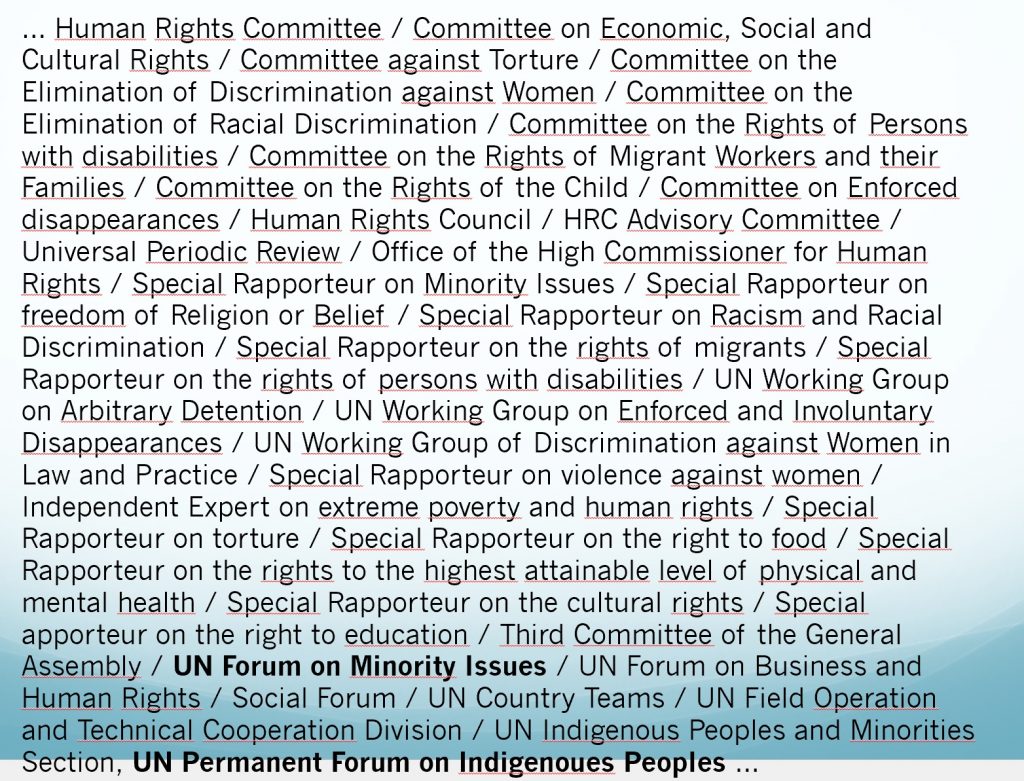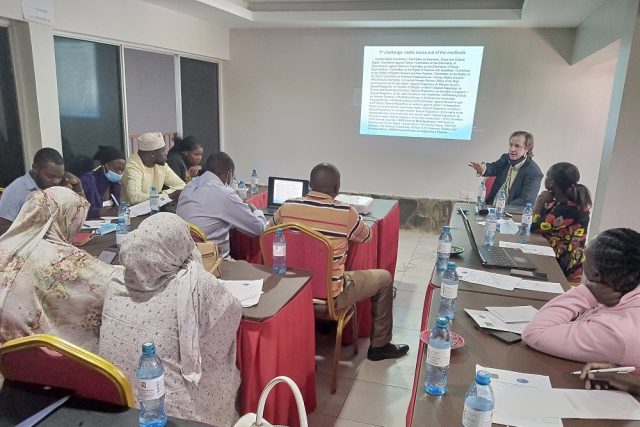There are many human rights mechanisms that organizations and individuals can take advantage of in advancing the rights of minorities.
Below is a list of the several UN Human Rights mechanisms that we can use to advance minority rights:

Clearly, there is a multitude of human rights mechanisms that you can engage in at the UN level.
Now we’ll narrow down to the mechanisms working on minorities. We’ve Treaty Bodies, forums, special procedures, Universal Periodic Review (UPR) and at the apex of it all we have the Human Rights Council.
The UPR, special procedures and treaty bodies focus on countries while the Human Rights Council and Minority Forum focus on specific topics.
On the other hand, treaty bodies and special procedures are expert mechanisms while the Human Rights Council and UPR are political forums.
There are restrictions on who participates in the debates at the Human Rights Council. From Civil Society, only NGOs with ECOSOC Status have some access.
SPECIAL PROCEDURES
Special procedures are also known as Special Rapporteur, Independent Expert or a Working Group. This is a mandate on a specific issue or a country situation which is a concern of the Human Rights Council.
For those of you interested in advancing the minority rights, there are special procedures of interest such as the Special Rapporteur on Minority Issues. The currently holder of that position is Mr. Fernand de Varennes, a Canadian.
Mr. Francisco Cali Tzay is the current special rapporteur on the rights of Indigenous peoples.
Mr. Ahmed Shaheed is the current special rapporteur on Freedom of Religion or belief (FoRB).
Mrs. Tandanyi Achiume form Zambia is the Special Rapporteur on racism and racial discrimination.
We also have a special rapporteur on human rights defenders – Ms. Mary Lawlor from Ireland is the current office holder.
There are numerous special procedures on several other issues such as on LGBT+ persons, judges and lawyers, Persons with Disabilities, Migrants, Torture, Summary Executions, Housing, Education, Slavery, Poverty, Business and Human Rights.
Using the Special Procedures is one of the fastest ways to get access to the United Nations in case you need to make an urgent appeal.
When the Special Rapporteur receives communications on an emergency they can write urgent letters to the government.
If you are communicating to the Special Rapporteur on behalf of a community or other people, you need to get an informed consent from the victims, their lawyer or family.
In order to be more effective, always document the human rights violations. In that case, the Special Rapporteur can start dialogue with the state, use the information in their reports or react publicly.
Special Rapporteurs can also make state visits. However, this requires invitation by the state. The outcome of such state visits is a full country report which is presented publicly or facilitation of dialogue between the state and members of the Civil Society. Sometimes the SP makes preliminary conclusions and recommendations.
Let me stop here to allow you digest what we have said. In the next article I shall update you on Treaty Bodies.
GOT a story? RING Kerosi Dotcom on +254 20 78 64348 or EMAIL info@kerosi.com


